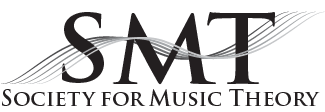Home › IsaacMalitz › Comments
Due to changing needs and technologies, the SMT Executive Board has decided to retire SMT Discuss (effective Nov. 9, 2021). Posts will be preserved for archival purposes, but new posts and replies are no longer permitted.
IsaacMalitz
About
- Username
- IsaacMalitz
- Joined
- Visits
- 559
- Last Active
- Roles
- Guest
- First Name
- Isaac
- Last Name
- Malitz
- Affliation or Location
- www.OMSModel.com
- Research Interests
- Models for music
- Website
- www.OMSModel.com
Comments
-
It seems to me that one of the most important aspects of this subject is "group response" or what I prefer to call "networked response" to music. E.g. where an entire audience responds to music in a somewhat coordinated way - swaying, waving hands, …
-
Ethan: That was a great idea you had to put OUP on the dissecting table. (btw, I think if you did a similar analysis of one of the top Music Theory journals, you would get similar results ...) I think that one of the best ways of diminishing the d…
-
Carson, you have raised a profound question which is rarely examined and which a lot of people continually get wrong. The question is: [a] What kind of subject matter is Music Theory? Is it ultimately a hard science that is the domain of brain…
-
Ethan, the focal point of your "fantasy music curriculum" ("fmc") is pop music. In 2017, I think there is enough substance in pop music that this is a feasible focal point. (Would not have been feasible back in the days of Perry Como and Patti Page)…
-
Carson's model can be restated without using the term "universal", and it would be better without that term. That term carries a lot of baggage, it's a distraction. Basically what Carson has done is to present us with a preliminary list of importan…
-
I think the following illustration will help us to get our arms around the subject that Carson has presented. Break up the song "Row Row Row Your Boat" into 4 components: [a] row row row your boat [b] gently down the stream [c] merrily merr…
-
I think that Carson's "first draft" of a model (in the first post of this thread) is a good start. But it does need refinement and development. And to that end, all of Nicholas' comments are pertinent. A few top-level comments: - For most inst…
-
What Carson has outlined is a model for analysis of all music (any genre, style, origin, ...) in a uniform manner. The model is simple, natural, comprehensible, allows rapid and deep insight. It allows comparison of any two pieces of music (How abou…
-
If an instructor is going to focus on the Western Canon, I think a minimum (and reasonable) expectation of any instructor is as follows: [a] [s]he is well-acquainted with topics and approaches that are outside the Western Canon [b] [s]he commu…
-
I like Stephen's proposal, consider me on board. I'll send my post tonight - to this thread. And let's get the ball rolling!
-
Ethan Hein's article (that Carson cites at the beginning of this thread) is not a narrow complaint about the teaching of some music professor or other. It was a complaint about mainstream music theory . He writes " ... in the hands of the music acad…
-
It might be instructive or at least amusing to collect a few musical works that have utilized mathematical techniques and were not successful. :) Taking a step back: I am a credentialed mathematician [mathematical logic] and also a musician. I hav…
-
You might add to the syllabus a piece that incorprates chance/randomness. This is appropriate in the sense that "random", "pseudorandom" and related are central concepts in the theory of computation (and some other mathematical areas). I'm not sure …
-
Salonen "Helix" . Spinning/twirling on a gigantic scale, may not conform to your model?
-
Personally, I think that some music theory is not derived (entirely) from musical-experience.
-
It looks to me that this matter is mainly about $$ and politics, and primarily about $$. The City is simply looking for new sources of revenue where the "updated" policy is easy to rationalize and implement. The only "music-relevant" thing I have to…
-
For what it's worth, I personally have two big questions about DL's Essay: [1] On the one hand, the essay seems to be an astute analysis of the music, and to some degree it enhances my understanding of the music. On the other hand, the essay seems t…
-
Attempting to get a higher-lever view of these issues, I present the following comments: [1] Mainstream Music Theory and Analyis ("MTA") does not seem to be able to successfully analyze/discuss much of top-quality contemporary music (by which I mean…
-
I like Stephen's proposal: "One possibility is to have an open contrarian session at annual SMT meetings with one invited paper to focus on, or publish a contrarian column in the newsletter, for the purpose of challenging current/status quo approach…
-
I concur with this last post from Carson, which is focused on how mainstream MT/MA is rather far behind the current practices and needs of composers and performers. Additionally, I believe that mainstream MT/MA is rather far behind what is happening…
SMT Discuss Manager: smtdiscuss@societymusictheory.org
